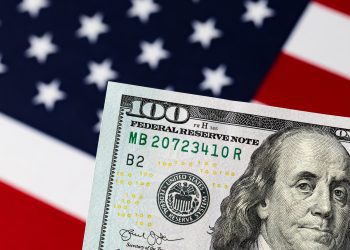This summer, it’s been hard to step into a small business in New York City without wondering if you might bump into a mayoral candidate. Republican Curtis Sliwa posed with pizza at a joint in Queens; Democrat Zohran Mamdani glad-handed at barbershops in Harlem; former Governor Andrew Cuomo chatted with butchers on the Upper West Side; and incumbent Eric Adams filmed endorsements at a family-owned Mexican restaurant in Brooklyn.
Photo ops like these have long been a mainstay on the campaign trail, in part because the more than 33 million small businesses in the United States are a vital piece of the economy. Although each of these businesses employs fewer than 500 people, combined they employ nearly half of all workers in the country and are responsible for two-thirds of all job growth in the U.S. over the last 25 years.
Yet what do small business owners actually think about electoral politics? Until now, no one really knew. In a first-of-its-kind paper, Neil Malhotra, a professor of political economy at Stanford Graduate School of Business, shows that small business owners are predominantly Republican and that their experiences operating small businesses affect their political views. Malhotra is surprised by how little research there’s been on this influential group of voters. “This is a really important group in the economy that no one is looking at,” he says.
Malhotra says these results could help explain some consistent political trends. Starting around 2016, exit polls show that Republican candidates consistently outperform Democrats among non-college-educated and high-income voters. Small business owners could help explain this shift among two seemingly disparate demographics. Malhotra notes that this group represents a disproportionately large number of voters who don’t have a college degree but earn above-average incomes. “It’s representative of a lot of trends in American politics,” he says, and something more research should examine.
First, the researchers analyzed historical data from two surveys that asked people if they were self-employed and their political preferences. Both surveys showed that self-employed Americans were more likely to lean Republican. After controlling for demographic characteristics like race, gender, education, and income, the data still showed a notable correlation between being self-employed and the likelihood of voting for a Republican. This suggested that small business owners do, in fact, represent a distinct political constituency.
Reacting to regulation
Next, the researchers compared this data from the U.S. with data from Germany, Australia, Japan, and other industrialized nations. The relationship between self-employment and conservative political views was even greater in most of the other countries. “This is potentially a general phenomenon,” Malhotra says, not just something unique to American politics.
The researchers then compared doctors who own their practices with those who don’t. In this smaller cohort, the researchers found that doctors who own their practices are between 2.5 and 5 percentage points more likely to register as Republicans and are between 3.5 and 6 percentage points more likely to donate to Republican candidates. For Malhotra and his colleagues, this finding further supports their theory that owning a small business nudges people in a specific political direction.
The last question the team investigated is why this relationship between owning small businesses and conservatism exists. Was it just a coincidence that the kind of person who’d start a small business would also be the kind of person to vote Republican? “I thought that the kinds of people who start small businesses might be different,” Malhotra says. These people might be more tolerant of risk, more individualistic, or have a stronger belief that hard work is related to morality.
The researchers asked these small business owners about a variety of social issues, such as gun rights and abortion, and economic topics, such as regulation and taxation. They also asked respondents about their personalities and feelings about the value of hard work and what creates success. In this survey, the researchers found that people who owned businesses and had employees were nearly 18 percentage points more likely to vote Republican than people who did not run their own businesses.
Contrary to Malhotra’s hypothesis, the reason this group leaned more conservative wasn’t due to specific personality traits. Instead, the results suggest that small business owners’ views on regulation explain their conservative bent. As Malhotra and his coauthors explain, “The experience of running a small business – especially when other employees are involved – increases the likelihood of having to deal with onerous government regulations, which in turn influences one’s political views rightward.”












